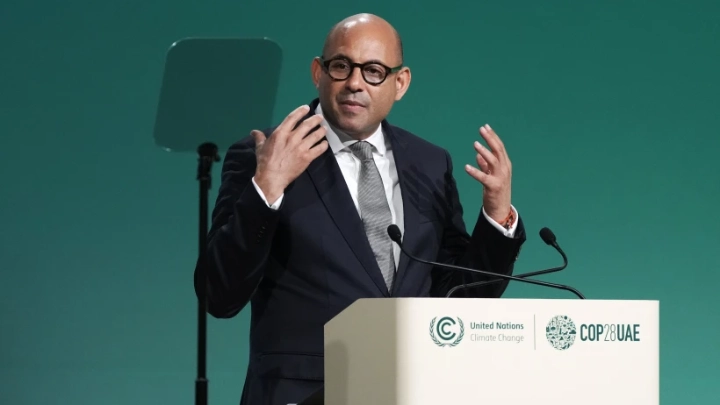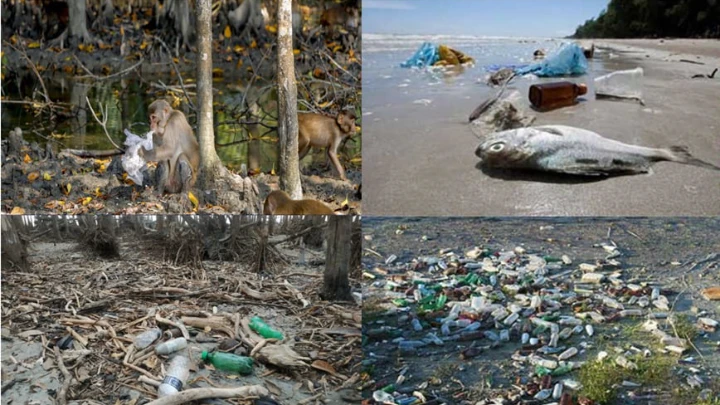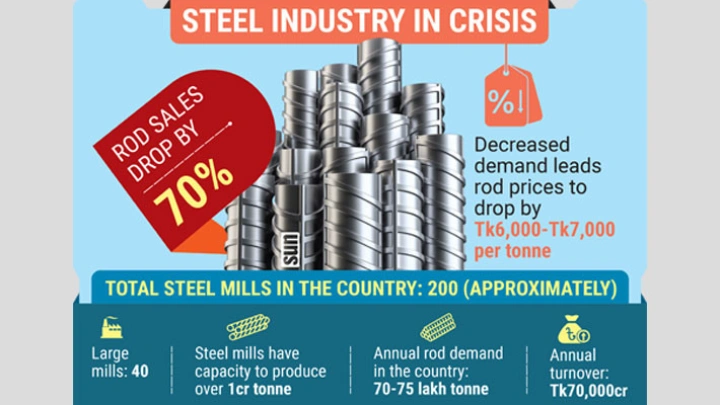Carbon capture: How to turn air into clean fuel
DW || Shining BD
In a world desperately seeking solutions to climate change, for this group of scientists, the answer to sustainable mobility might be closer than we think. And that's not just another metaphor.
In Lindau, Germany, a city of vast valleys and lakes like straight out of a fairy tale, one company is transforming air into green fuel.
"We believe that CO2 is not just waste, but can be a resource for all kinds of products," explained Johannes Prock, a chemist and chief technology officer at Obrist Group, an Austrian technology company with over 20 years of experience in automotive systems.
In their case, they use CO2 to produce so-called green methanol, a chemical compound that several industries consider to be a sustainable alternative to fossil fuels.
In order to do this, Prock and his team use "direct air capture," or DAC, a technology that filters CO2 from the atmosphere and makes it fit for industrial purposes.
Although it sounds like something out of a science fiction novel, this technology has been around for more than 10 years, but never on a large scale and for these purposes.
"The technology works well on a small scale," Prock told DW, "but the real technical difficulty is to build big facilities and ensure the process remains efficient."
Is green methanol a viable solution?
The main problem for this may be raising enough money. For biochemical engineer Anna Mas Herrador, who is researching this technology at the Spanish University of Rovira i Virgili, "the most significant obstacle to large-scale implementation of DAC is the high cost involved."
Current research and support can speed up the process. "Other low-carbon technologies, such as solar photovoltaics or batteries, have seen huge cost reductions in the recent past. This is also expected to happen in the near future with DAC," Mas Herrador told DW.
For now, Prock and his team are testing modified Tesla cars to function as hybrids. They've combined a smaller electric battery with a methanol engine and are testing their hybrid models on the streets of Lindau.
"Electric vehicles usually have an expensive and heavy battery. With our hybrid models, the manufacturing costs are reduced by about half," said Frank Obrist, CEO and founder of Obrist Group. "The idea is to provide vehicles of this type for $26,984 for the average citizen."
Ramping up renewables and EV production
For Carlos Bravo Villa, an independent environmental consultant, allowing the use of synthetic e-fuels in road transport would risk throwing the whole decarbonization effort off track.
"The decarbonization of transport is a major challenge, and there is no room for inefficient use of electricity," Bravo Villa told DW.
According to a study presented in 2023 by Transport and Environment and other European climate organizations, in order to boost the use of e-fuels in road transport, a large amount of additional renewable energy would have to be generated. That would entail the installation of a significant number of extra renewable energy plants.
"If you put renewable electricity directly into a car battery, you get up to five times more energy efficiency than if you use that electricity to produce green fuel," Bravo Villa said.
However, electric vehicles (EV) may only be available to a select few. The Obrist Group argued that they are still too expensive, and that hybrid models of this type can accelerate the transition to cleaner cars.
"We cannot change the entire automotive industry to electric cars. So, we need a different, environmentally friendly possibility to solve this issue," Prock explained.
Although electric car sales have been rising steadily in recent years, we may be at a turning point. The economic consultancy provider BloombergNEF sees a slowdown in 2024, although it expects global electric vehicle sales to reach 16.7 million units this year.
In April, Tesla said it would accelerate the launch of cheaper models after reporting disappointing sales results for the third straight quarter.
For his part, Bravo Villa believes that the focus on electric cars has to remain firm. "Hybrid cars, not even using this methanol, do not make any sense, and even less so at the moment, with the accelerated evolution of battery technology, which will continue to improve in the short term," he said. "In parallel, the deployment of the necessary public charging infrastructure is already underway."
Using the technology on a global scale
Although the focus is often on cars, green methanol has a promising role to play in other areas, too. Prock pointed out that, "it can also be used as a raw material for the chemical industry, and as fuel for ships."
In this respect, Bravo Villa goes even further: "It would be an excellent option for maritime transport, where the possibilities of using batteries like those in cars are still very limited," he said. Likewise, DAC technology can play an important role in the whole process.
"It has promising potential, as it offers the ability to capture CO2 directly from the air, regardless of geographical location," Mas Herrador said. "It can be complementary to other climate change mitigation measures, such as emission reductions and the use of renewable energies."
As the sun sets over Lindau, it's clear a definitive solution is still out of reach. A future in which sustainable mobility is a reality may be near, but achieving it will require more than just air.
Shining BD























